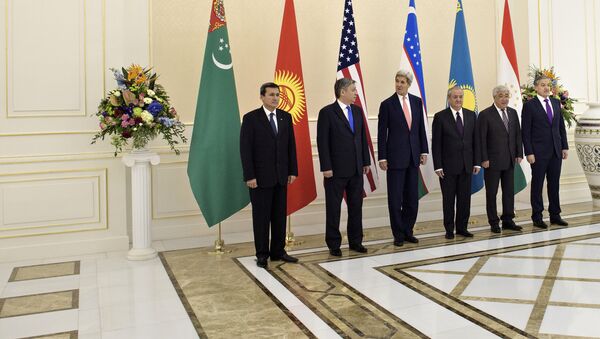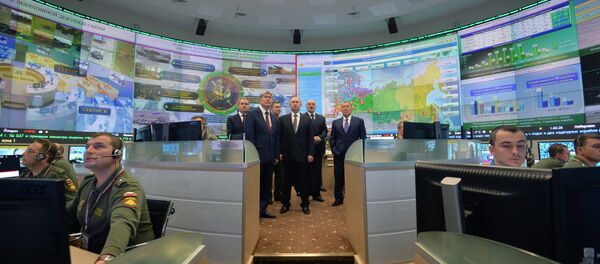In preparation for the election, Sputnik Tajikistan sought to imagine how US policy in the region might change in the near future, depending on the results of November's election.
Rostislav Ishchenko, President of the Kiev Center for Systemic Analysis and Forecasting, told Sputnik that in the event of a Clinton victory, US policy in the region won't change much, at least in the near future, with the new administration focusing most of its resources on Syria.
"I think that if Clinton wins, no fundamental changes will take place…By the time Clinton hypothetically becomes president, problems in Syria will become so severe that the US would have more important issues to deal with than Central Asian ones."
"I would like to stress that the US will be unlikely to get involved in any serious campaign in Central Asia right now, not because they don't need it (of course they would be interested in trying to tie Moscow or Beijing's hands) but simply because they do not have enough resources to defend their interests in their priority region – the Middle East," the analyst stressed.
Ishchenko suggested that the Middle East, and especially Syria, has proven to be the US's strategic focal point. "If they had more resources, we would already have witnessed profound upheaval in the countries of Central Asia; the problem likes in the fact that their resources have been exhausted, forcing them to concentrate on one strategic point."
Accordingly, the analyst suggested that the US will either keep reduce their activity near Russia's underbelly, or leave it at the present levels. "Right now, the question is not so much US activity as the stability of local governments," Ishchenko concluded.
Andrei Kazantsev, director of research at the Moscow State Institute of International Relations' Institute of International Studies, says that that Afghanistan is perhaps the biggest unknown in future US policy at the moment.
"It hasn't been decided whether the US will withdraw its troops from Afghanistan or not. Factually, Central Asia will be affected by this decision more than anything."
If Clinton wins (and Kazantsev believes that this is more likely), the US will be unlikely to withdraw its troops, at least in the short term, given the instrumental role she played in formulating President Obama's Afghanistan strategy during her tenure as secretary of state.
As for Donald Trump, he would only benefit from striking another blow to President Obama's reputation, Kazantsev suggested. Accordingly, if he were to become president the chances of withdrawal would rise dramatically.
This in turn would have security implications for the Central Asian countries bordering Afghanistan, whose security situation has already deteriorated due to the conflict in the neighboring state.
Ishchenko agreed with his colleague, and said that if Clinton is elected, US policy will be to continue the military campaign against the Taliban, while negotiating a compromise which would allow the insurgents to realize some of their interests.
In any case, both analysts believe that Central Asia could become just another point of confrontation between Washington and Moscow, depending on who is elected.
"If Trump wins, it's possible that he will be more inclined to find common ground with Russia; if Clinton wins, it's likely that the confrontation between the two countries could move even beyond what it has been under Obama," Kazantsev concluded.






